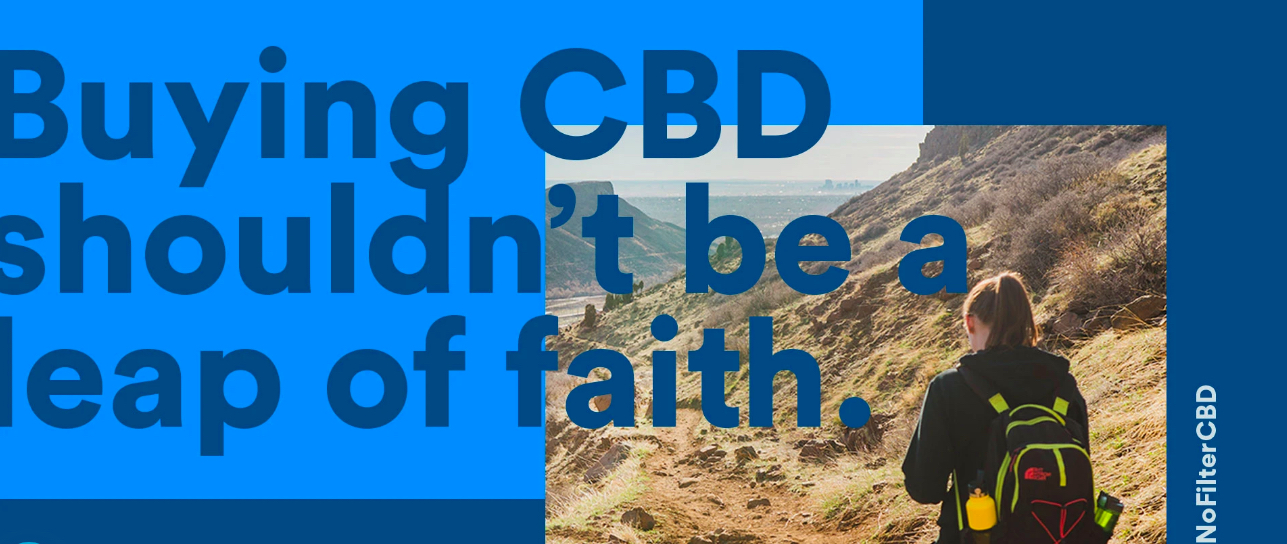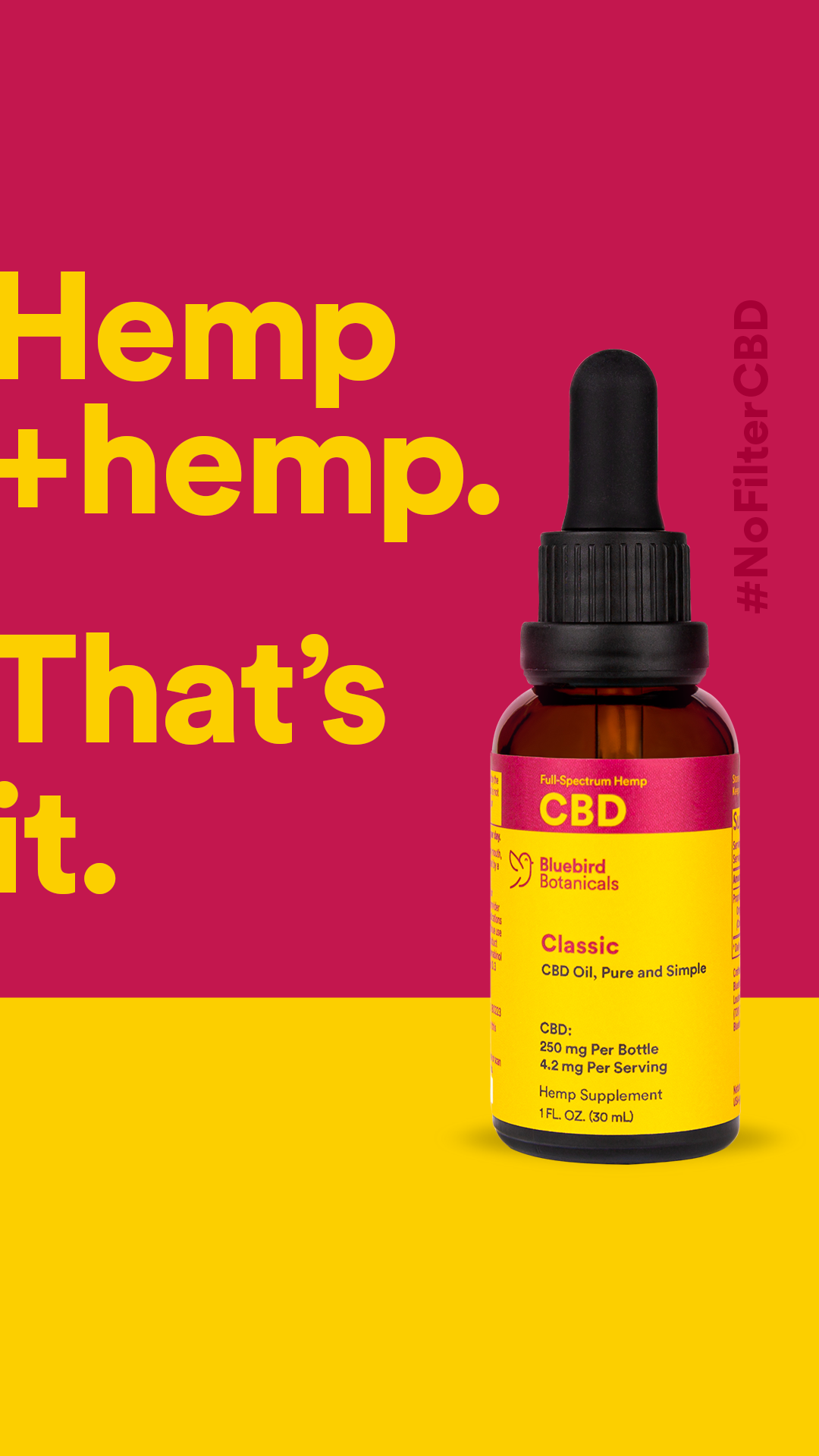
CBD Isn’t A Panacea—And CBD Company Bluebird Botanicals Acknowledges That In Its Ads
CBD has become the hot sauce of beauty and wellness, with brands putting it in everything.
Ubiquity isn’t the same as success. Although many customers swear CBD relieves pain, nausea and anxiety, there are others who’ve tried CBD and haven’t suddenly been healed physically or mentally. To the group that hasn’t found CBD to be a panacea, its existence in products from protein powders to makeup primers can be bewildering, especially since countless brands make bombastic claims about what it can do.
CBD manufacturer Bluebird Botanicals is tackling consumer concern head-on with its #NoFilterCBD digital advertising campaign. The campaign aims to provide clarity around downsides of CBD, including that it can take months to produce beneficial results and won’t reverse the effects of unhealthy lifestyles. In short, Bluebird admits in the initiative encompassing display ads and sponsored social media posts that CBD isn’t for everyone.

“A lot of what drove us towards this campaign idea started with who Bluebird was as a CBD company and a business in the e-commerce space,” says senior marketing director Jason Nelson. “Selling CBD wasn’t always the largest priority. Education, making sure that customers felt enabled and empowered to take control of their self-care and start that journey was always more important than selling a bottle of CBD.”
The campaign is informed by conversations Bluebird’s staff has had with customers about what CBD does and doesn’t do, and the reasons why it might not be working for them. Founded in 2012 before CBD was a buzzy trend, Bluebird believes the cannabinoid should be accessible to everyone, but Nelson underscores people won’t be open to it if they don’t understand it. He says the campaign reflects “truth about the industry, about our own company…to shine a light and, hopefully, provide a greater sense of education and training while, at the same, continue to move the needle when it comes to our e-commerce growth.”
The unorthodox messaging has been effective. Since the #NoFilterCBD digital campaign launched in April, Bluebird has seen its return on investment for display ads grow over 8X. Specifically, Bluebird is generating a return of $8.43 on every dollar spent on #NoFilterCBD display ads. It was averaging a return of 56 cents for every dollar spent last year, when it was running display ads without a prescribed ad campaign.
“We see a lot of other companies basically taking CBD and trying to have it as this miracle cure-all.”
The campaign has boosted Bluebird’s e-commerce revenues amid a pandemic that has sapped sales for a lot of brands. “Right around mid-March was when a ton of e-commerce companies saw this huge decrease in sales and revenue. Then, stimulus checks came out, so we had a stimulus bump,” says Nelson. “As a company, we have remained healthy through COVID, and I do attribute this campaign and these messages that we’ve been pushing out in helping to sustain us through this.”
Bluebird was an early entrant to the online cannabinoid market. In fact, it shares it was the third company to sell CBD products in the United States. Nelson estimates the number of companies in the country selling CBD has ballooned to almost 3,000. Bluebird sells full-spectrum CBD in liquid and capsule products ranging in price from about $40 to $129. Bluebird also offers CBD-infused body lotions and pet products, as well as CBD isolate. Dissimilar from full-spectrum CBD, CBD isolate contains no ancillary extracts from the hemp plant, including THC, the psychoactive constituent of cannabis.
From the beginning of its business, Bluebird has erred on the side of caution when it comes to CBD claims, emphasizes its chief communications officer Michael Harinen. “One of the biggest differences between the way we approach how we advertise and market CBD compared to other companies is medical claims,” he says, adding, “The rules that the FDA has in place are there for a reason, and we respect them, whereas we see a lot of other companies basically taking CBD and trying to have it as this miracle cure-all, whether they’re making very blatant medical claims or whether they’re making structure function claims about what their products can do.”





Leave a Reply
You must be logged in to post a comment.